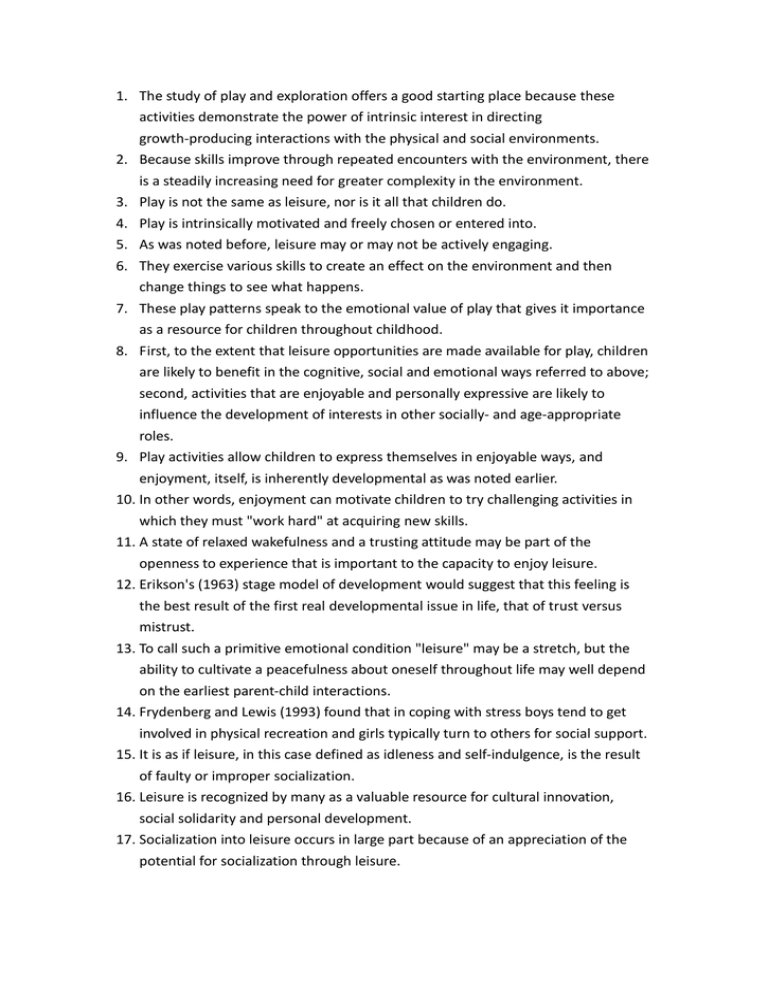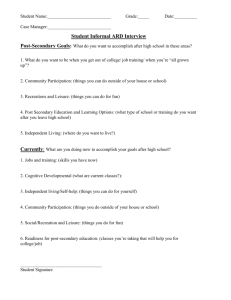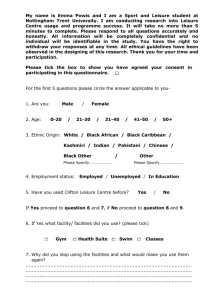1. The study of play and exploration offers a good... activities demonstrate the power of intrinsic interest in directing
advertisement

1. The study of play and exploration offers a good starting place because these 2. 3. 4. 5. 6. 7. activities demonstrate the power of intrinsic interest in directing growth-producing interactions with the physical and social environments. Because skills improve through repeated encounters with the environment, there is a steadily increasing need for greater complexity in the environment. Play is not the same as leisure, nor is it all that children do. Play is intrinsically motivated and freely chosen or entered into. As was noted before, leisure may or may not be actively engaging. They exercise various skills to create an effect on the environment and then change things to see what happens. These play patterns speak to the emotional value of play that gives it importance as a resource for children throughout childhood. 8. First, to the extent that leisure opportunities are made available for play, children are likely to benefit in the cognitive, social and emotional ways referred to above; second, activities that are enjoyable and personally expressive are likely to influence the development of interests in other socially- and age-appropriate roles. 9. Play activities allow children to express themselves in enjoyable ways, and enjoyment, itself, is inherently developmental as was noted earlier. 10. In other words, enjoyment can motivate children to try challenging activities in which they must "work hard" at acquiring new skills. 11. A state of relaxed wakefulness and a trusting attitude may be part of the openness to experience that is important to the capacity to enjoy leisure. 12. Erikson's (1963) stage model of development would suggest that this feeling is the best result of the first real developmental issue in life, that of trust versus mistrust. 13. To call such a primitive emotional condition "leisure" may be a stretch, but the ability to cultivate a peacefulness about oneself throughout life may well depend on the earliest parent-child interactions. 14. Frydenberg and Lewis (1993) found that in coping with stress boys tend to get involved in physical recreation and girls typically turn to others for social support. 15. It is as if leisure, in this case defined as idleness and self-indulgence, is the result of faulty or improper socialization. 16. Leisure is recognized by many as a valuable resource for cultural innovation, social solidarity and personal development. 17. Socialization into leisure occurs in large part because of an appreciation of the potential for socialization through leisure.




